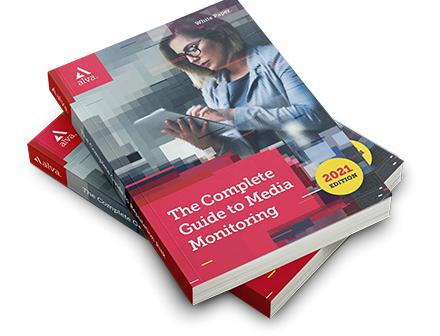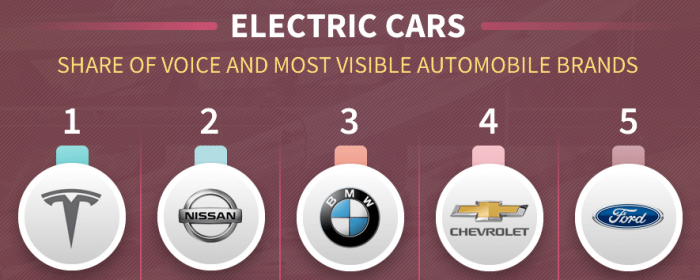How companies can measure Advocacy on Social Media
Social media is an increasingly important channel for modern businesses of all scales. Research has revealed that 74% of consumers use social media to guide purchasing decisions, while during pre-shopping planning, 75% of people use Facebook to get advice and recommendations from friends and family.
It isn’t just peer reviews that are of interest – 60% of consumers interact with the brands they buy from via social media and over a third expect a quality relationship where they feel genuinely heard by the brand.
This shows the importance of a business engaging with its target audience on social media in influencing initial purchasing decisions. However, if the company can turn the consumer into a brand advocate, this is just the start of a potentially beneficial cycle.
Almost half of consumers leave online reviews after purchase. If they have had a positive experience then this extends the brand reach, adding the authentic peer experience valued by others when researching their own purchasing decisions. In addition, of the consumers that leave reviews, over two thirds will buy again from the same brand within three months.
As social media and peer reviews are now such an integral part of the purchasing process, it is vital for brands to understand the impact their efforts are having on their social community and if this in turn is converting into active brand advocacy.
alva’s Social Media Advocacy (SMA) measurement is designed to help companies identify the drivers of positive and negative advocacy, correlate with other internal metrics to understand drivers of switching behaviour and brand loyalty and benchmark performance over time.
Use cases include:
- A UK high street retailer correlated Social Media Advocacy scores with footfall to understand the issues linked with changes in consumer traffic
- A global FMCG company tracked Social Media Advocacy after a product reformulation to measure consumer reactions
- A US-based airline tracked Social Media Advocacy in relation to flights that were delayed or grounded to help assess risk around unplanned events
How do we define Advocacy?
Social Media Advocacy is the favourable or unfavourable recommendation of a company’s brand, products or services via the medium of social media.
alva’s system collates content around a company, brand or peer group across a broad range of social media platforms. Content is then limited to that which is generated by consumers and scored according to four categories (and on a scale from 1-10):
Active Advocacy (9-10): Any posts or comments that directly encourage others to use a company’s services or products, or comments reporting switching behaviour.
Passive Advocacy (5-8): Any posts that praise or speak positively of a company, but do not directly suggest to others to use its services or products.
Passive Criticism (3-5): Any posts that criticise a company, but do not directly encourage others not to use its services or products.
Active Criticism (1-2): Any posts or comments that criticise a company and indicate that the individual will choose a different company, or comments that actively encourage others not to use a company’s services or products.
Social Media Advocacy is then tracked over a period of time and displayed as a trend line, set of key drivers or single score.
Encouraging employee advocacy on social media
A recent Entrepreneur article highlighted the importance of Social Media Advocacy generated not by consumers but by employees.
For B2B industries or those with a consumer base unlikely to express satisfaction levels on social media, this other avenue for Advocacy becomes increasingly relevant.
Instead of defining Advocacy through the lens of products and services, the definition shifts to whether a company is a good place to work or if it embodies its corporate values on the shop floor.
In addition to analysing public sites like Glassdoor, Twitter and blogs, best practice means correlating with internal data (employee satisfaction surveys, internal message boards). By looking at these data sets together, a company can balance external viewpoints that could be skewed negative with topics driving sentiment and discussion internally. This holistic view of employee advocacy allows Internal Communications, HR and the Board to effectively manage risk and leverage internal discussions externally through social.
Risks of inauthentic advocacy
Building consumer advocacy is usually a gradual, organic process. Some brands have attempted to take shortcuts by incentivising customers to make positive feedback, or paying prominent figures to promote their brands often without making the arrangement clear. Some companies even resort to writing fake reviews of their products and services.
At the same time, as consumers become savvier to these dishonest tactics, trust is falling in brands on social media. 30% of consumers responded that they had little to no trust in brand information on Facebook, with Twitter close behind on 25%. In addition, the increased prominence of Fake News has had a tangible impact on brand reputation, but has also led consumers to question the validity of information via social channels.
These activities often breach advertising codes of conduct, but potentially worse than any financial fine is the impact it has on brand perceptions, with almost 40% of consumer saying they would lose trust in a company found to be using these tactics.
This means that brands need to develop a longer term plan for social engagement, devote resources to building and interacting with their audience, and have the necessary tools to measure and track the outcomes of their efforts so they can demonstrate the value to the senior executives.
Understanding and nurturing the drivers of positive advocacy, as well as identifying and mitigating emerging negative issues should be an essential part of every social media strategy. When done correctly, converting your social community into active brand advocates is a powerful tool – extending your own reach and providing the peer reassurance so valued by modern consumers.
If you’d like to know more about how you can measure Social Media Advocacy for your company, please contact Mark Wilson:
mark.wilson@alva-group.com
+44 (0)203 735 9793
Be part of the
Stakeholder Intelligence community











